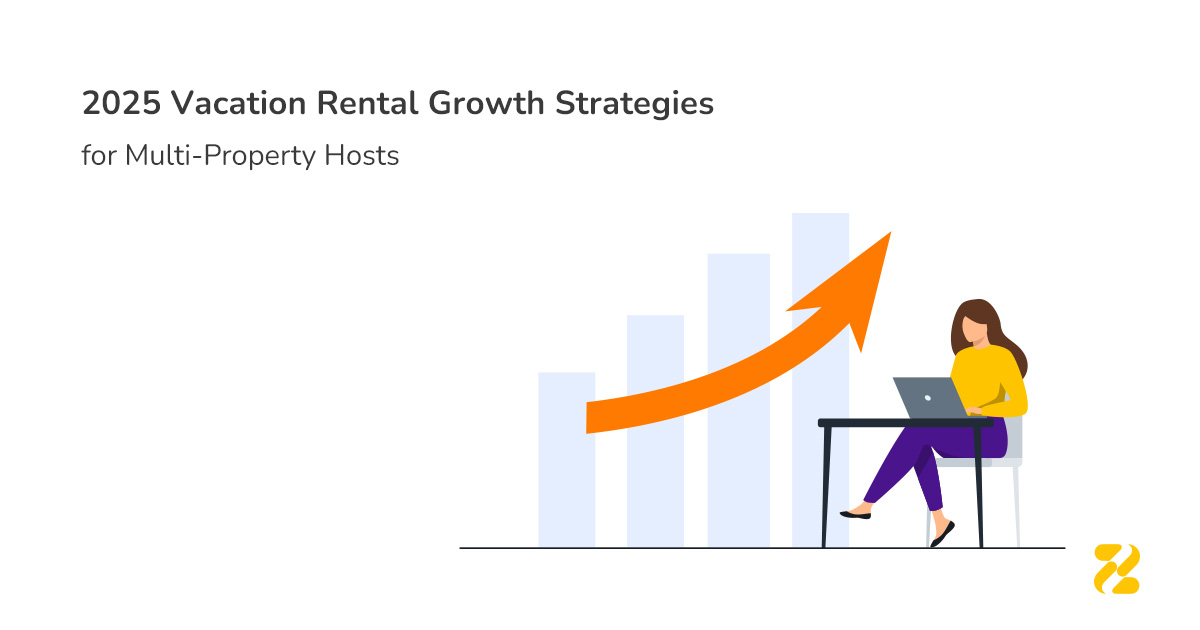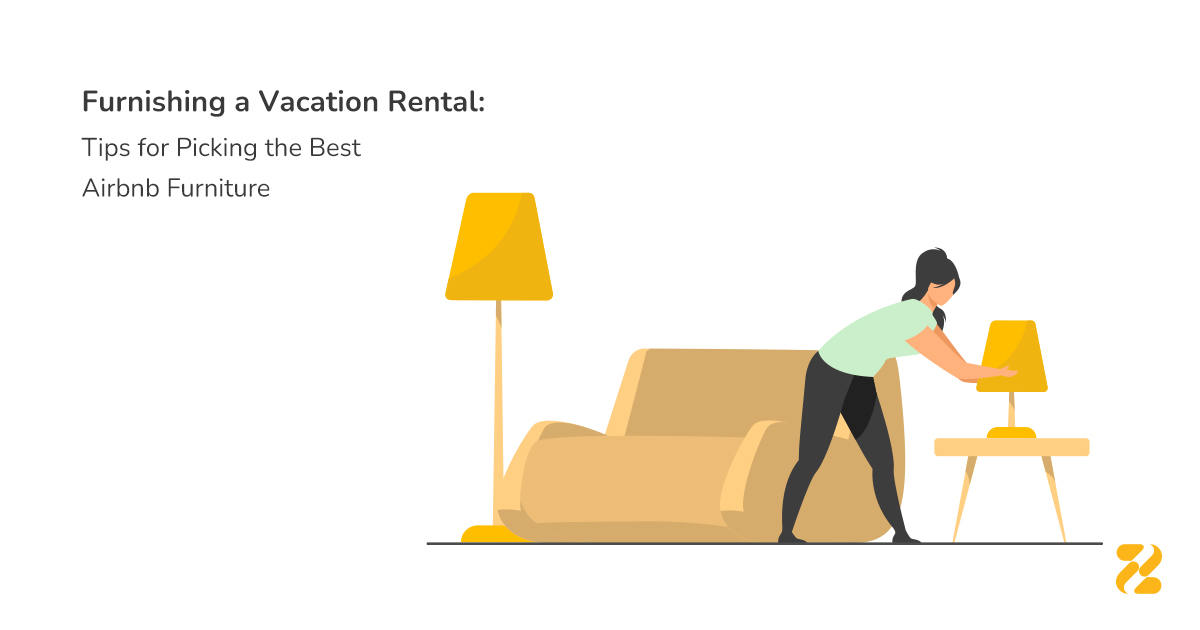Table of Contents
1. Optimise Your Cash Flow: Why Using Other People’s Money Can Accelerate Your Serviced Accommodation Business Growth
The old saying, “Cash is King,” holds true – if your serviced accommodation business runs out of cash, you can’t cover costs, pay wages, or settle bills. Without cash flow, your business will struggle to grow and may eventually be forced to stop trading.
Traditionally, some business owners follow the principle of “if you can’t afford it, don’t buy it.” While this approach has its merits, there’s another strategy that could significantly boost your growth: leveraging other people’s money.
Instead of using your cash reserves to refurbish your property, consider this:
- Depreciating Assets: The value of goods like furniture and equipment depreciates quickly. Once you pay for them, their value starts to drop.
- Leverage Financing: By using financing options, you can keep your cash on hand and invest it in other high-return areas of your business.
Although you’ll pay interest on borrowed money, the benefits often outweigh the costs. Here’s why:
- Preserve Cash Flow: Keeping your cash reserves intact allows you to invest in other revenue-generating parts of your business.
- Mitigate Risk: Having cash on hand provides a safety net for slow periods or unexpected expenses.
For example, rather than spending £50k of your cash on refurbishing a property, consider placing the refurbishment costs on a 5-year finance agreement, such as a Lease or Hire Purchase, which isn’t secured against the property. You can then use that £50k as a deposit to buy another property, effectively doubling your income potential.
By using a separate finance facility that isn’t tied to the property or its mortgage, you free up capital for more strategic investments, allowing your business to scale more rapidly. Why wait to grow when you can leverage financial tools to accelerate your success today?

2. Explore Alternative Financing Options to Grow Your Serviced Accommodation Business
The Rise of the Alternative Finance Market
Over the past 20 years, the “Alternative” finance market has steadily grown. Unlike traditional lenders, these alternative finance providers tend to operate under the radar. You might occasionally see a TV advert or a Facebook post about them, but most have chosen not to advertise widely on TV, radio, or online. Instead, they rely on brokers to bring in business.
Brokers are independent and not directly employed by lenders, which means lenders don’t need to pay them salaries or pensions. As more lenders enter the finance market, their first step is often to connect with brokers, recognising the value they bring to transactions. Brokers handle everything from pre-screening applicants to gathering the necessary information. This allows lenders to focus on making lending decisions and disbursing funds once all the details are in place.
Challenges with Traditional High Street Banks
Since the 2008/9 financial crisis, major High Street banks have significantly reduced their lending to Small to Medium-Sized Enterprises (SMEs) in the UK. In some cases, they even pay Challenger Banks to take customers off their hands, possibly because they’ve grown too large or find lending to SMEs for low-value assets too risky.
High Street banks now often take a month just to provide initial feedback on a loan application. They then request more information and may take weeks longer to reach a decision. Sometimes, they offer terms that are so unfavourable it’s effectively a decline – a tactic to let businesses down gently without saying “No” outright.

Opportunities in the Alternative Finance Market
This reluctance from traditional banks has created opportunities in the Alternative finance market, where specialist lenders are more willing to finance low-value assets. These lenders are willing to take on the risk because there’s a large market for customers needing finance for furniture, IT equipment, software, and the complete costs of refurbishing or fitting out business premises.
In the alternative finance market, the focus shifts from the asset being financed to the borrower’s ability to repay the loan. Established SMEs that have been trading for three years or more can secure funding at reasonable rates, often comparable to those offered by banks. Decisions are typically made within one working day – far quicker than the month-long wait at a bank. Moreover, brokers don’t charge the business a fee; they earn their commission from the lender. It’s a win-win-win: the lender gets the loan, the broker gets paid for finding the best rates, and the business secures the finance for its refurbishment while retaining its cash reserves.
Financing Options for Start-Ups
This financing option is also available to start-up companies, allowing them to grow their serviced accommodation businesses. Start-ups – businesses trading for between 0 and 3 years – face higher interest rates due to the perceived risk of lending to companies without a trading history. Lenders will also require Personal Guarantees from directors, who must be homeowners, though the finance is not secured against the property. The Personal Guarantee simply ensures that the directors will cover the loan repayments with their own assets if the business cannot.

The Application Process
The process to obtain finance is straightforward. We provide clients with a quote offering various options—Lease, Hire Purchase, or Unsecured Loan – up to a 5-year term. The goods being financed can be anything needed for your business. If you decide to proceed, we request basic financial information, typically a full set of Annual Accounts and current trading figures. For new start-ups, we’ll need a business plan with financial projections and possibly some bank statements.
We then present our proposal to the underwriters at the lender with the lowest rates. If declined, we approach another lender. If approved, we draft the finance agreement for you to sign. Once we receive an invoice from the supplier of the refurbished goods, we’ll pay it with your authorisation, and your monthly payments will begin. If it’s an Unsecured Loan, the cash is deposited directly into your business account for you to pay suppliers. However, remember that Unsecured Loans always require Personal Guarantees, while Lease and Hire Purchase agreements typically do not – this depends on your business’s financial strength and the underwriters’ assessment.
Get in Touch
If you’d like to discuss financing the refurbishment of your Serviced Accommodation, Property Developments, Hotels, Offices, Pubs, Cafés, Restaurants, or any other types of business, please get in touch. We have a panel of over 70 lenders to finance all types of equipment, and another panel of over 130 lenders for all forms of Property Finance.
I hope to hear from you soon.
Best regards,
Billy Walker
Managing Director
Source Asset Finance Ltd
M: 07956 045421
T: 020 3816 0396
E: [email protected]
W: www.sourcefinanceuk.com
This is a guest blog post for Zeevou’s Blog.





